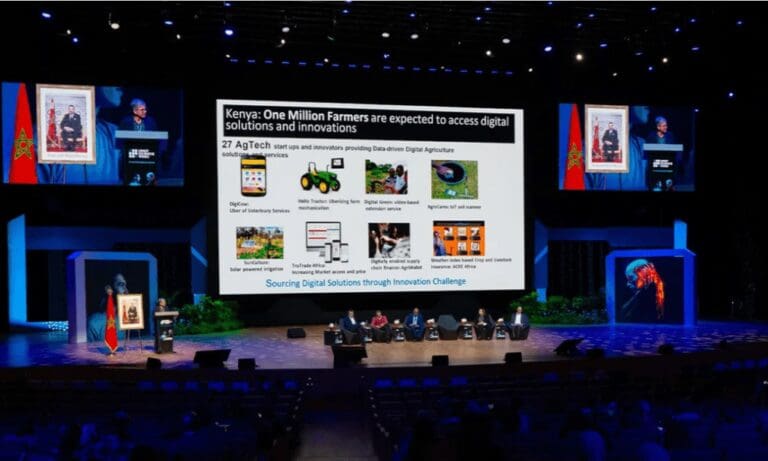Agriculture in Africa is still struggling to make the digital leap. During the fourth day of the UM6P Scientific Week, experts and researchers drew up a contrasting inventory, between promising advances and persistent challenges.
At the Mohammed VI Polytechnic University (UM6P) in Benguerir, the discussions led to an edifying observation: in sub-Saharan Africa, only 5 per cent of small farmers regularly use digital technologies.
This statistic, revealed by Ken Lohento, a specialist in digital agriculture at FAO, reveals the extent of the technological divide that is holding back the development of the agricultural sector on the continent.
One of the major obstacles identified by the experts lies in access to basic infrastructure. “Around 50 per cent of rural communities do not have reliable access to electricity,”
Lohento emphasizes, making the widespread use of digital agricultural tools impossible. But beyond infrastructure, it is also a question of geographical disparities.
“Africa is not a country,” he recalls, emphasizing the significant gaps between states.
Indeed, some countries such as Kenya, Morocco, Ethiopia and Tunisia have made notable progress in digital agriculture. These nations have been able to integrate technological tools into agricultural practices, thus facilitating the optimization of yields and the management of resources. In contrast, countries such as Niger, Togo, Chad and Guinea continue to face considerable difficulties, hampered by a lack of funding, infrastructure and training.
For the researchers present at UM6P, the future of African agriculture lies in a transition to precision agriculture, where each plot of land would be exploited with maximum efficiency thanks to new technologies
“Digital agriculture is, above all, precision agriculture,” explains Mustapha El Bouhssini, professor of entomology and associate dean of research at the Faculty of Agricultural and Environmental Sciences at UM6P.
Among the countries that are banking on digital technology to transform their agriculture, Morocco stands out with its ambitious initiatives.
“We are aiming to implement conservation agriculture on one million hectares in the coming years,” announces El Bouhssini. This is a crucial strategy in a country that has been facing persistent drought for seven years.
The Al Moutmir initiative, launched by UM6P, illustrates this commitment to agricultural digitalization. With around a hundred engineers crisscrossing the country, this outreach program supports farmers in adopting new technology-based practices.
“But to reach a wider audience, digital solutions must be democratized,” admits El Bouhssini.
While food security remains a major challenge for the continent, experts agree on one thing: the future lies in a smart combination of technological innovation and sustainable agricultural practices.
Artificial intelligence, satellite data and mobile solutions could help bridge the technology gap, provided that massive investments in infrastructure and training are made.
MK/te/Sf/fss/gik/APA


